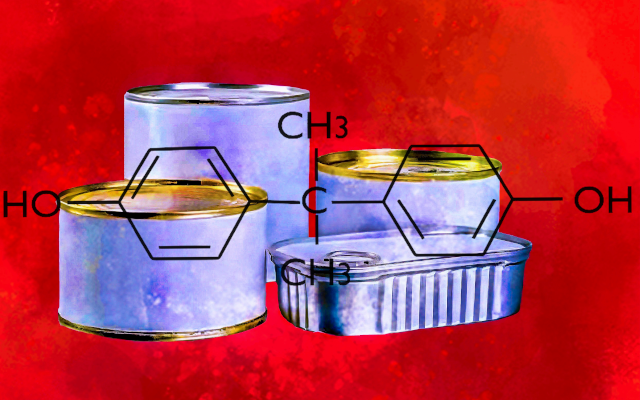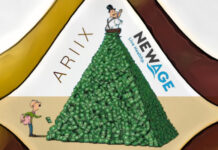The Competition Authority in France has imposed fines of almost 20 million euros (€19.553.400 in total) – on three associations of the food and canning industry (ANIA, FIAC, ADEPALE), the can producers’ union SNFBM and 11 canning industries, including Bonduelle and Unilever – after having ascertained the existence of a cartel agreement, aimed at preventing any reference to the harmful bisphenol A on the label of canned food cans. With the aim of preventing French consumers from choosing the safest products, as they are free of the dangerous endocrine disruptor, namely BPA. (1)
Bisphenol A in cans, cartel agreement in France
The French Antitrust has ascertained and sanctioned a cartel agreement put in place between 6 October 2010 and 21 July 2015, the date on which the ban on the use of bisphenol A (BPA) in food packaging came into force in France. In the previous four years, during the transitional period, packaging and preserves with and without BPA were already available on the market. But the associations and some industries had agreed to prevent consumers from distinguishing products in this respect.
The distorting activity of the competition was orchestrated by sector organizations in two moves, explains Autorité de la concurrence:
1 – prevent manufacturers from communicating about the absence of BPA in their food containers;
2 – encourage manufacturers to refuse to supply BPA-free cans before January 1, 2015 (the date the ban comes into force) and then to refuse to stop selling BPA-containing cans after that date.
11 industries involved including Bonduelle, Unilever and General Mills
The procedure of the French Antitrust has involved and led to the sanction of 11 canned food and packaging industries which also participated individually in the competition-distorting cartel.
Industries canning companies involved are Andros, Bonduelle, Charles & Alice, Cofigeo, Conserves France, D’Aucy, General Mills and Unilever. The can industries are Ardagh, Crown and Massilly.
Bisphenol A, known risks
FrancePlease note, it is the only EU member state to have banned BPA in all food packaging since 2015, a substance qualified in 2017 by ECHA as an endocrine disruptor.
Bisphenol A it interferes with the hormonal system and is associated with various diseases, such as behavioral changes (hyperactivity), diabetes, obesity and cardiovascular diseases. (2)
Unheeded alarms
EFSA (European Food Safety Authority, 2023) defined exposure to bisphenol A as dangerous for the immune system. Therefore drastically reducing the Tolerable Daily Intake (TDI) for BPA, from 4 mg to 0,2 ng (billionths of a gram) per kg of body weight. (3)
The European Parliament – in the recent vote on the proposal for a regulation on packaging and packaging waste (PPWR, Packaging and Packaging Waste Regulation) – thus asked for the elimination of BPA and PFAS from food containers, precisely because of their danger to health. (4)
Marta Strinati
Footnotes
(1) Bisphénol In food containers: approximately 20 million euros from sanctions. Competition Authority. 11.1.24. Press release. https://www.autoritedelaconcurrence.fr/fr/article/bisphenol-dans-les-contenants-alimentaires-pres-de-20-millions-deuros-de-sanctions
(2) Marta Strinati. Bisphenol A in foods, the role of microplastics. GIFT (Great Italian Food Trade).
(3) Dario Dongo, Giulia Pietrollini. Toxicity of bisphenol A, EFSA declares a public health alarm. GIFT (Great Italian Food Trade).
(4) Marta Strinati. Packaging Regulation (PPWR), the European Parliament approves a softer version. GIFT (Great Italian Food Trade).
Professional journalist since January 1995, he has worked for newspapers (Il Messaggero, Paese Sera, La Stampa) and periodicals (NumeroUno, Il Salvagente). She is the author of journalistic surveys on food, she has published the book "Reading labels to know what we eat".








